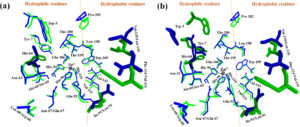INSPIRATION
The rise of global temperatures is directly related to each phase in the industrial revolution.The unchecked setup of manufacturing units and the wasteful use of resources in the growing phase of each industrial revolution has done irreversible damage to the planet. Thus the fourth industrial revolution of smart technologies does not have a free pass to utilize resources. This is why manufacturing companies are shifting to sustainable materials, energy, and processes to reduce their impact on the environment, making green technologies important among the manufacturing trends. These sustainable solutions make the final product green ensuring a longer lifetime and recyclability.
4DPioneers (2020, Nord, France) is a French startup that uses additive manufacturing of high performance materials to create more sustainable products. The startup uses its structured development strategy for selecting the right modeling, the right material, and the right printing process for manufacturing companies. The material selection process evaluates materials to choose the one with high performance
and durability and with a minimum impact on the environment. The effectiveness of material selection in maintaining sustainability depends on the printing process. The appropriate printing process ensures a sustainable flow in the production process. So by taking decisions based on a green outlook 4D pioneers minimizes the contribution of manufacturing to environmental pollution.
Skynano (2017, Tennesse, USA) is a US-based clean energy tech startup utilizing carbon emissions as a chemical feedstock to manufacture high-value functional materials. The patent-pending technology gives commercial viability to carbon conversion technologies using secondary material from greenhouse gas inputs. The technique relies on electrochemistry to create an efficient process to convert atmospheric
carbon dioxide into useful functional nanomaterial. These nanomaterials have superior mechanical, thermal, and electronic properties in comparison to traditional materials. In this way, the startup supplies manufacturing companies with advanced high-performance materials at a low cost and also acts as an effective carbon capture method.




